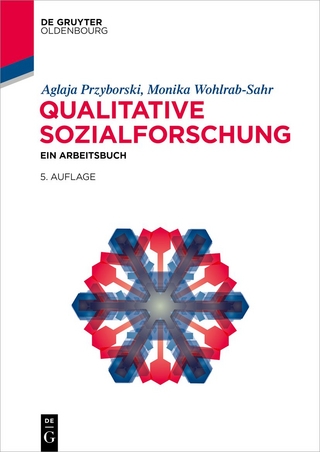
Counterfactuals and Causal Inference
Cambridge University Press (Verlag)
9781107694163 (ISBN)
In this second edition of Counterfactuals and Causal Inference, completely revised and expanded, the essential features of the counterfactual approach to observational data analysis are presented with examples from the social, demographic, and health sciences. Alternative estimation techniques are first introduced using both the potential outcome model and causal graphs; after which, conditioning techniques, such as matching and regression, are presented from a potential outcomes perspective. For research scenarios in which important determinants of causal exposure are unobserved, alternative techniques, such as instrumental variable estimators, longitudinal methods, and estimation via causal mechanisms, are then presented. The importance of causal effect heterogeneity is stressed throughout the book, and the need for deep causal explanation via mechanisms is discussed.
Stephen L. Morgan is the Bloomberg Distinguished Professor of Sociology and Education at Johns Hopkins University. He was previously the Jan Rock Zubrow '77 Professor in the Social Sciences and the director of the Center for the Study of Inequality at Cornell University. His current areas of interest include social stratification, the sociology of education, and quantitative methodology. He has published On the Edge of Commitment: Educational Attainment and Race in the United States (2005) and, as editor, the Handbook of Causal Analysis for Social Research (2013). Christopher Winship is the Diker–Tishman Professor of Sociology and member of the senior faculty of Harvard's Kennedy School of Government. Prior to coming to Harvard in 1992, he was Professor of Sociology and Statistics and by courtesy Economics at Northwestern University. His research focuses on statistical models for causal inference - most recently mechanisms and endogenous selection; how black clergy in Boston have worked with police to reduce youth violence; the effects of education on mental ability; pragmatism as the basis for a theory of action; the implications of advances in cognitive psychology for sociology; sociological approaches to how individuals understand justice. Since 1995 he has been editor of Sociological Methods and Research.
Part I. Causality and Empirical Research in the Social Sciences: 1. Introduction; Part II. Counterfactuals, Potential Outcomes, and Causal Graphs: 2. Counterfactuals and the potential-outcome model; 3. Causal graphs; Part III. Estimating Causal Effects by Conditioning on Observed Variables to Block Backdoor Paths: 4. Models of causal exposure and identification criteria for conditioning estimators; 5. Matching estimators of causal effects; 6. Regression estimators of causal effects; 7. Weighted regression estimators of causal effects; Part IV. Estimating Causal Effects When Backdoor Conditioning Is Ineffective: 8. Self-selection, heterogeneity, and causal graphs; 9. Instrumental-variable estimators of causal effects; 10. Mechanisms and causal explanation; 11. Repeated observations and the estimation of causal effects; Part V. Estimation When Causal Effects Are Not Point Identified by Observables: 12. Distributional assumptions, set identification, and sensitivity analysis; Part VI. Conclusions: 13. Counterfactuals and the future of empirical research in observational social science.
| Reihe/Serie | Analytical Methods for Social Research |
|---|---|
| Zusatzinfo | 64 Line drawings, unspecified |
| Verlagsort | Cambridge |
| Sprache | englisch |
| Maße | 176 x 253 mm |
| Gewicht | 990 g |
| Themenwelt | Mathematik / Informatik ► Mathematik |
| Sozialwissenschaften ► Soziologie ► Empirische Sozialforschung | |
| ISBN-13 | 9781107694163 / 9781107694163 |
| Zustand | Neuware |
| Informationen gemäß Produktsicherheitsverordnung (GPSR) | |
| Haben Sie eine Frage zum Produkt? |
aus dem Bereich


